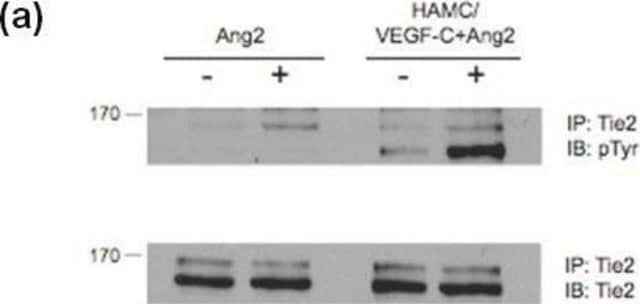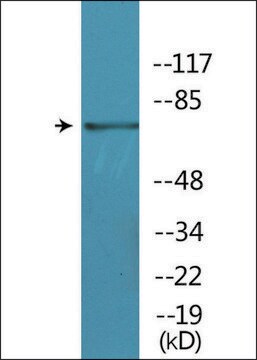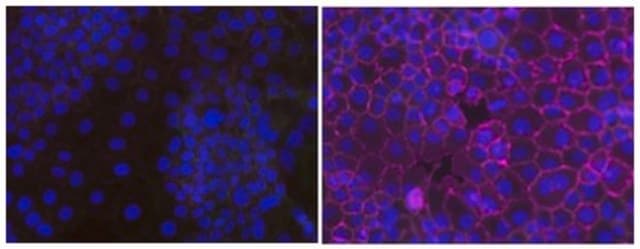FCMAB323PE
Milli-Mark® Anti-Phosphotyrosine-PE Antibody, recombinant clone 4G10®
clone 4G10, Milli-Mark®, from mouse
About This Item
Polecane produkty
pochodzenie biologiczne
mouse
Poziom jakości
białko sprzężone
PE
forma przeciwciała
purified immunoglobulin
rodzaj przeciwciała
primary antibodies
klon
4G10, monoclonal
reaktywność gatunkowa
vertebrates, human
producent / nazwa handlowa
Milli-Mark®
metody
flow cytometry: suitable
izotyp
IgG2bκ
Warunki transportu
wet ice
docelowa modyfikacja potranslacyjna
phosphorylation (pTyr)
informacje o genach
human ... PID1(55022)
Powiązane kategorie
Opis ogólny
The advent of anti-phosphotyrosine antibodies is one of the significant events in signal transduction research. Before the availability of anti-phosphotyrosine antibodies, tyrosine phosphorylation of proteins and enzymes was investigated through hazardous and time-consuming radioactive experiments. Anti-phosphotyrosine antibodies are commonly used in western blots after the targeted proteins have been immunoprecipitated to measure the tyrosyne phosphorylation of the proteins. Anti-phosphotyrosine antibodies are also directly used on cell lysate to examine the overall change of tyrosine phosphorylation level in reponse to various treatments.
Specyficzność
Zastosowanie
Jakość
Opis wartości docelowych
Postać fizyczna
Komentarz do analizy
Treated versus untreated A431 cells
Informacje prawne
Nie możesz znaleźć właściwego produktu?
Wypróbuj nasz Narzędzie selektora produktów.
Kod klasy składowania
10 - Combustible liquids
Klasa zagrożenia wodnego (WGK)
WGK 2
Temperatura zapłonu (°F)
Not applicable
Temperatura zapłonu (°C)
Not applicable
Certyfikaty analizy (CoA)
Poszukaj Certyfikaty analizy (CoA), wpisując numer partii/serii produktów. Numery serii i partii można znaleźć na etykiecie produktu po słowach „seria” lub „partia”.
Masz już ten produkt?
Dokumenty związane z niedawno zakupionymi produktami zostały zamieszczone w Bibliotece dokumentów.
Nasz zespół naukowców ma doświadczenie we wszystkich obszarach badań, w tym w naukach przyrodniczych, materiałoznawstwie, syntezie chemicznej, chromatografii, analityce i wielu innych dziedzinach.
Skontaktuj się z zespołem ds. pomocy technicznej







